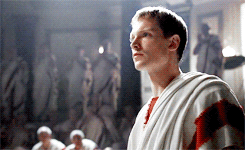Strategic Leadership Analysis
Augustus archetypes consolidate power quietly, codify processes, and leave systems that endure. You transform victories into governance, align incentives, and prefer sustainable order to temporary brilliance.
Strengths
- Sees structural fixes that outlive charismatic leadership
- Aligns incentives and rituals to reinforce order
- Stabilizes volatile environments with measured reform
- Integrates former rivals into sustainable frameworks
- Values data, law, and ritual equally
Pressure Points
- Change may feel slow to visionaries
- Risk of becoming overly cautious
- Requires constant vigilance against complacency
- Delegation can create palace intrigue if trust is thin
- Needs creative partners to keep system innovative
Relationship Operating System
You appreciate partners who bring creative spark while respecting structure. Shared planning rituals keep connection alive.
Deployment Zones
Corporate governance, risk management, institutional design, finance, program management
Leadership Lessons to Apply Today
Leave room for experimentation. Pair your order with spaces where teams can prototype safely.



